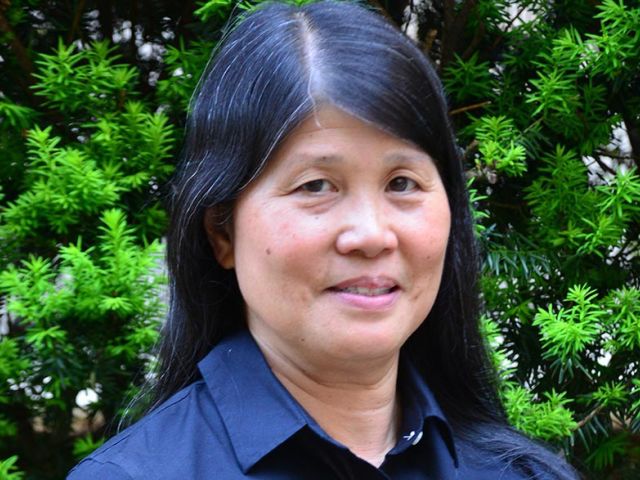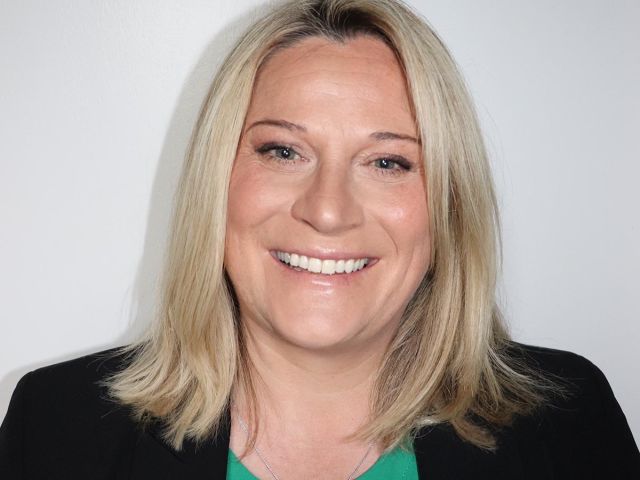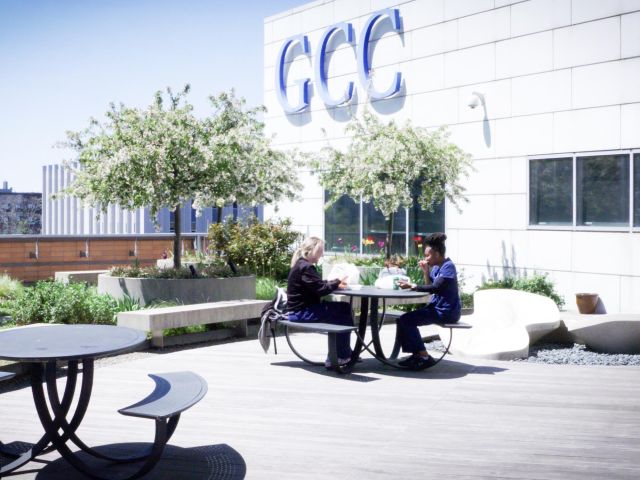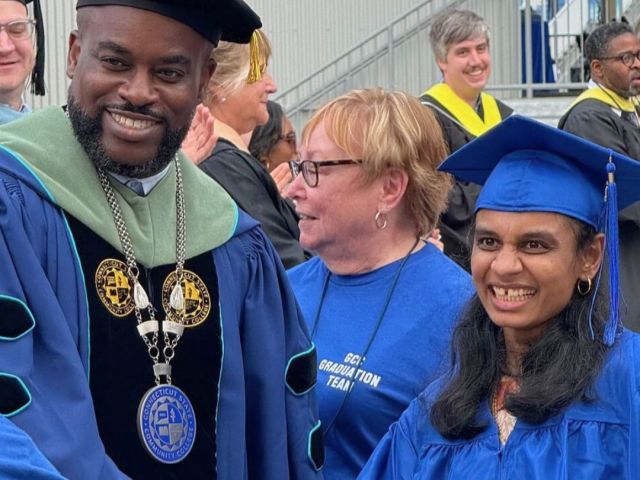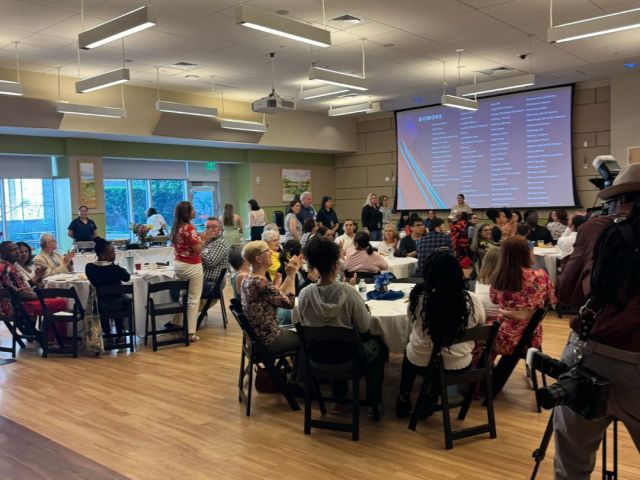News Center
Bringing you the latest news and events from Gateway Community College.
Conversational Reading: Helping Children Become Lifelong Readers
Share
Read a book.
Ask a question.
Start a conversation.
These seemingly simple steps can help turn young children into lifelong readers, said Diane W. Frankenstein, a consultant who specializes in early childhood education and literacy training throughout the United States, Europe and Asia. Frankenstein shared her insights December 6 on conversational reading with Gateway Community College (GCC) students, GCC’s Early Learning Center (ELC) faculty and staff.
“Our job is simple, to open the doors of literacy to a child,” she said.
Mary Ellen Cody, GCC’s dean of Development and Community Partnerships, thanked Frankenstein for sharing her reading strategies not only with GCC students, faculty and staff, but also with parents of the young students who attend the ELC at an earlier workshop. Cody also thanked longtime GCC supporter Andrew Eder, a New Haven philanthropist who supports literacy projects.
“We received tremendous support from Andy Eder,” Cody said. “He has a vision for all that New Haven can be and he cares deeply about literacy.”
Frankenstein had great praise for Gateway President Dr. Dorsey L. Kendrick, Marjorie Weiner, the director of ELC, and Eder for their interest and investment in the literacy of young people and for finding creative ways to build bridges between and among parents, children, teachers and other stakeholders in the community.
Weiner said Frankenstein’s visit was enormously successful. “Diane empowered parents by giving them the tools to help their children become successful readers. Parents are talking about the great conversations and connections that are happening now with their shared reading experiences,” Weiner said. “Diane validated parents as their children’s first teachers.”
Each person attending the workshops received a copy of Frankenstein’s book Reading Together as well as the children’s book Unlovable by Dan Yaccarino, the story of a dog who is not accepted by other dogs because he is different. She says she tells young students that “books are not alive, but when you take a book off the shelf, you bring that book to life.” She shared many strategies to help children fall in love with reading including taking a “picture walk” through Unlovable.
Licella Arboleda, an educational assistant in the GCC Center for Educational services, attended the earlier workshop for ELC parents. She returned to the second workshop to thank Dr. Frankenstein for the strategies she passed on. She and her husband read constantly with their children, but the questions Frankenstein suggested opened up new avenues of discussion and prompted her older daughter to tell her that boy in her class was being teased. Her daughter asked if she could bring the books to her kindergarten teacher. He read the book to the class and they had a discussion about accepting others.
“There is no manual to being a parent, you have to have many tools,” Arboleda said. “Her book is such a powerful tool.”
Eder said he too found Frankenstein’s approach worked. One night he was reading to his four grandchildren, all ages four and under. He took a “picture walk” with them and soon they were posing big questions and seeking answers together. He said his son-in-law happened to be listening and he couldn’t believe the depth of the conversation.
“The idea is so simple and yet it works,” Eder said. “Reading together even for 10 minutes a day can be the difference between starting school with a vocabulary of 2,000 words or a vocabulary of 22,000 words.”


